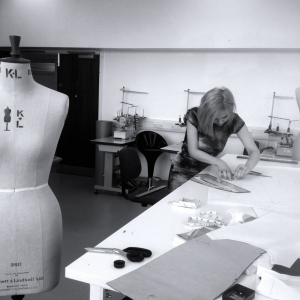What contributes to being a successful freelancer?
Interview with Rosemary, a digital content marketing manager reveals must-see freelance tips
-
To have a clear action plan and vision, and to be dedicated without overpromising.
-
As your clients see you do a good job, your track record of work will get you more work.
-
Be willing to learn and to adapt. From my own experience, the more you learn, the easier it is to learn new skills when needed.
-
Have a clear structure of work and set goals for what you want to achieve
Remember, Rome was not built in a day, and the better the foundation you create for your business with skills and knowledge, the easier it will be to get work.
Rosemary, a digital content marketing manager shares the freelance lessons she has learned over the years—see her tips & exceptional entrepreneurial wisdom.
Read full interview from Interview with Rosemary, a digital content marketing manager reveals must-see freelance tips.
Interview with Alexandra, a freelance fashion designer building her own brand
Hard work and luck, being in the right place at the right time.
- I consider the most important thing is to get clear feedbacks while working on a project and have a good communication with the client.
- I’m always trying my best to fulfil the client’s expectations when I end a project, I don’t like to leave space for “what if”. I try to make sure the client is happy and satisfied with the results.
- Having a nice website or online portfolio to show previous work/projects.
- Treating my clients well. Being transparent and professional is essential, this helps clients to build up trust and confidence in me and my work.
- Self-discipline. It wasn’t easy for me at the beginning, especially that all my clients are from different time zones so I never had a proper night, until I started to become more self-disciplined and work on my time management skills in order to have a more balanced timetable.
Alexandra is a freelance fashion designer who works remotely while traveling and building her own brand.
Read full interview from Interview with Alexandra, a freelance fashion designer building her own brand.
Interview with Nelvina, a fashion designer who designs bags and clothing
It is important to have platforms like Upwork for freelancers as you get a contract and this way you make sure you’ll get paid when you submit the work. I have previously worked on other projects outside of Upwork and always made sure to ask for a down-payment. I once worked for a whole day on a project which the client eventually did not pay for but fortunately, I at least had the 50% down-payment.
I always discuss projects thoroughly with my clients first so as to make sure we are on the same page. Being in the design sector, sometimes we can have different views on a design. I might like something that the client hates. So it is crucial to discuss the project well so as to prevent endless revisions.
I have also learned not to take every comment personally because sometimes I might have designed something I think is great but then the client does not like it. Some clients might not have a design eye and I try to give my point of view. But not every client will listen. So I try to design according to the client’s idea while also giving my input.
Having said that, I will not design something I do not believe in. I have previously refused some jobs because I did not believe I could design something nice while sticking to a specific brief given by the client.
Nelvina is a freelance fashion and graphic designer that works remotely while working with clients all around the world
Read full interview from Interview with Nelvina, a fashion designer who designs bags and clothing.
Interview with Michael, a VFX artist that works remotely
A lot of effort needs to be put into it.
It’s not just diving in head first and expect work. You have to go for the legal side of it as well.
Most jobs under a certain amount just aren’t worth the effort cause if someone doesn’t pay you $100 you can sue in small claims but you’d waste more money than you would get in return.
I only take small jobs that take me an hour maximum usually unless I feel the client is a sincere person. Also, they need to have a very good track record—do the research on anyone you work for on big jobs.
Read every piece of a contract, I’ve had a contract state that I would have to rework anything for free for up to 6 months in very fine print before. Technically if it took me a week to finish I would have to work for free for 6 months after it was turned in.
Keep a trust to a very small circle. Have a client earn your trust and vice versa, this way you and the client get a better feeling of how to work with each other and create a more respectable workplace.
Never say you can do something that you cannot. For instance, I can read code and write it to a degree but I am in no shape a programmer. I can program what I need in python or JavaScript, like a rigging toolset for myself, or fix code in C++. As I said I’m no programmer so what would take me 2 to 3 days would take a programmer 1 day or less.
In the event a natural disaster happens inform your client so they can be prepared, but if they want you to travel in the middle of a hurricane or mudslide the money just isn’t worth it your well-being is more important.
Networking is very important as well, I’ve helped a few people from college get some work when it was plentiful to me, and some of them have told me about jobs that are posted early to help me get a quick foot into the interview section.
Michael is a freelance visual effects (VFX) artist, creating 3d models, mockups and videos while working remotely.
Read full interview from Interview with Michael, a VFX artist that works remotely.
Interview with Ayesha, a freelance writer that gained early clients through her blog
It doesn’t take a lot to be a successful freelancer.
You need your prospects to know that you have the experience and the know-how of the job.
When talking to a new client, show them what you have done. Show them what you can do for them. Write a cover letter geared to their business. It doesn’t have to be a lengthy letter listing your achievements since high school. In fact, a shorter one gets read quicker.
If you’re new, you might have to compromise on your rates. But be selective. Choose work that will help you grow or help you get new clients. Working for your grandma for free probably won’t.
Give your clients what you are promising, and do it on time. Adding something extra once in a while will help you get more work.
If I’m working as a blog writer for a client, I offer them suggestions for their social media pages. The chances are they will offer you more work if they like your suggestions. Repeat work from the same clients is the best way to get more work because, with each new client, you are spending extra time building rapport and developing a communication system.
Ayesha is a freelance content writer—learn how she made the leap to remote work while building her blog and raising her family
Read full interview from Interview with Ayesha, a freelance writer that gained early clients through her blog.
Interview with Elizabeth, a graphic designer and art director
The single thing I see in myself and other freelancers in my tribe is a lack of fear around taking opportunities as they arise, even when outside our comfort zones.
A ‘can-do’ attitude (even if followed by a hasty Google) is an asset.
The ability to take challenges as they come and overcome them logically and without interruption to the client is also a big one.
Elizabeth provides the ultimate list of tips for aspiring freelancers and remote workers. Check out her game-changing tools, and advice for thriving as a freelancer.
Read full interview from Interview with Elizabeth, a graphic designer and art director.
Interview with Deb, a sales copywriter who transitioned from software development
I do have a few tips to share with aspiring remote workers. These could come in handy for somebody who’s mulling over whether to take the plunge:
- Have at a safety net of 6-9 months of finances in the bank before you take the leap into remote working full time.
- If you have currently have a job, start remote-working gradually by getting your feet wet, one project at a time. It takes time to build your brand, get positive feedback, and build a pipeline of projects/clients. So be careful before jumping all in if you have the option.
- Focus on maintaining a routine. Just because you can work in your pyjamas, doesn’t mean you should. Be disciplined, focus and cut out distractions and procrastination.
- Always vet your clients before taking them on. Before taking on a project, try and do a background check of your potential clients. If you are on a remote-working platform like Upwork, ensure that the client has a “Payment Verified” icon against his name/company name. In my beginning days as a remote-worker, I wrote around 20,000 words of content for a client who was not “Payment Verified”, and he just disappeared after I submitted all my work. If your client is from a source other than a remote working portal like Upwork, make sure you sign a contract with the client and take an advance payment.
- Always have a pipeline of clients. Projects are unlikely to last forever. So, its essential that you keep bidding for new projects. Even if you have a long-term project, you never know whether it will end up being long-term, so be on the lookout for other projects as well.
- Have a work-life balance. Its ever too easy to slip into a 7-day work week for weeks at a stretch. That’s a very bad idea as it can easily lead to burnout. Make it a point to have some off-days during the week.
Deb made the jump from full-time software developer to freelance sales copywriter—learn how he made the transition.
Read full interview from Interview with Deb, a sales copywriter who transitioned from software development.
Interview with Hanling, a data scientist that works remotely on machine learning
I'm an Upwork freelancer with the Top Rated badge for a while in the past.
But last month, two of my contracts were ended by the client because I found I'm unable to deliver the work within given time frame (I've just started them and didn't get any payments) and I told them.
Then my job success rate dropped hence no top rated badge. This is a painful lesson for me.
So if you want to be a successful freelancer, be sure to do the job you can definitely complete.
Otherwise, don't waste time applying them. You won't get (full) payment for failed projects and that might ruin your freelance career.
So now before starting a contract, I need to figure out everything including what the clients' expectation are, what is the deadline, etc. These are very very important in order to satisfy the clients.
For important thing to my work/productivity, like what I said, we should keep in touch with the clients. That's the best way to make the job successful.
Hanling started working remotely as a student and now does freelance machine learning and data analysis for clients all around the world.
Read full interview from Interview with Hanling, a data scientist that works remotely on machine learning.
Interview with Erin, a virtual assistant with a successful approach to freelancing
I think this question requires a lot of introspection. What does success look like in your own life? Is it hitting a certain annual income? Is it working with clients that you love? Is it creating a life where you don't work much at all and instead have more free time for family, travel, or passion projects?
For me, my "success" is all about balance. If I can assist my clients to the best of my ability, help other VA's learn a new skill through one of my online courses, make time to cook a great meal, take my dog on a walk, and get a weightlifting workout in, then my day was a great success.
Erin has found freelancing success as a virtual assistant—see her organizational tips & insights into how she picks clients that suit her business.
Read full interview from Interview with Erin, a virtual assistant with a successful approach to freelancing.
Interview with Ascencia, a content marketer, and avid gig economy professional
I think because freelancers are working on a much shorter term than employees do, we have to prove ourselves over and over again.
With each new client, we have to convince them that we’re capable of doing our work.
So to be a successful freelancer, you have to be on top of your game all the time and willing to learn.
A forgotten two-year-old Upwork account allowed Ascencia to become a content marketer—see how the gig economy has offered her an alternative path to success.
Read full interview from Interview with Ascencia, a content marketer, and avid gig economy professional.









